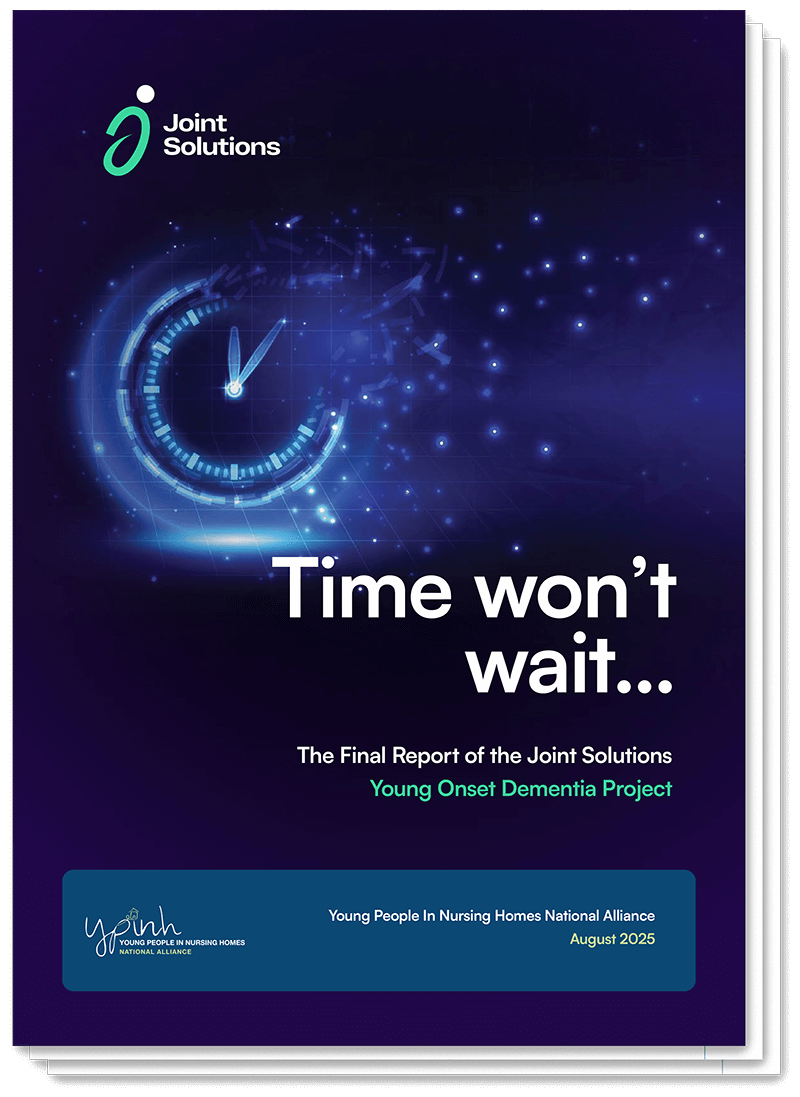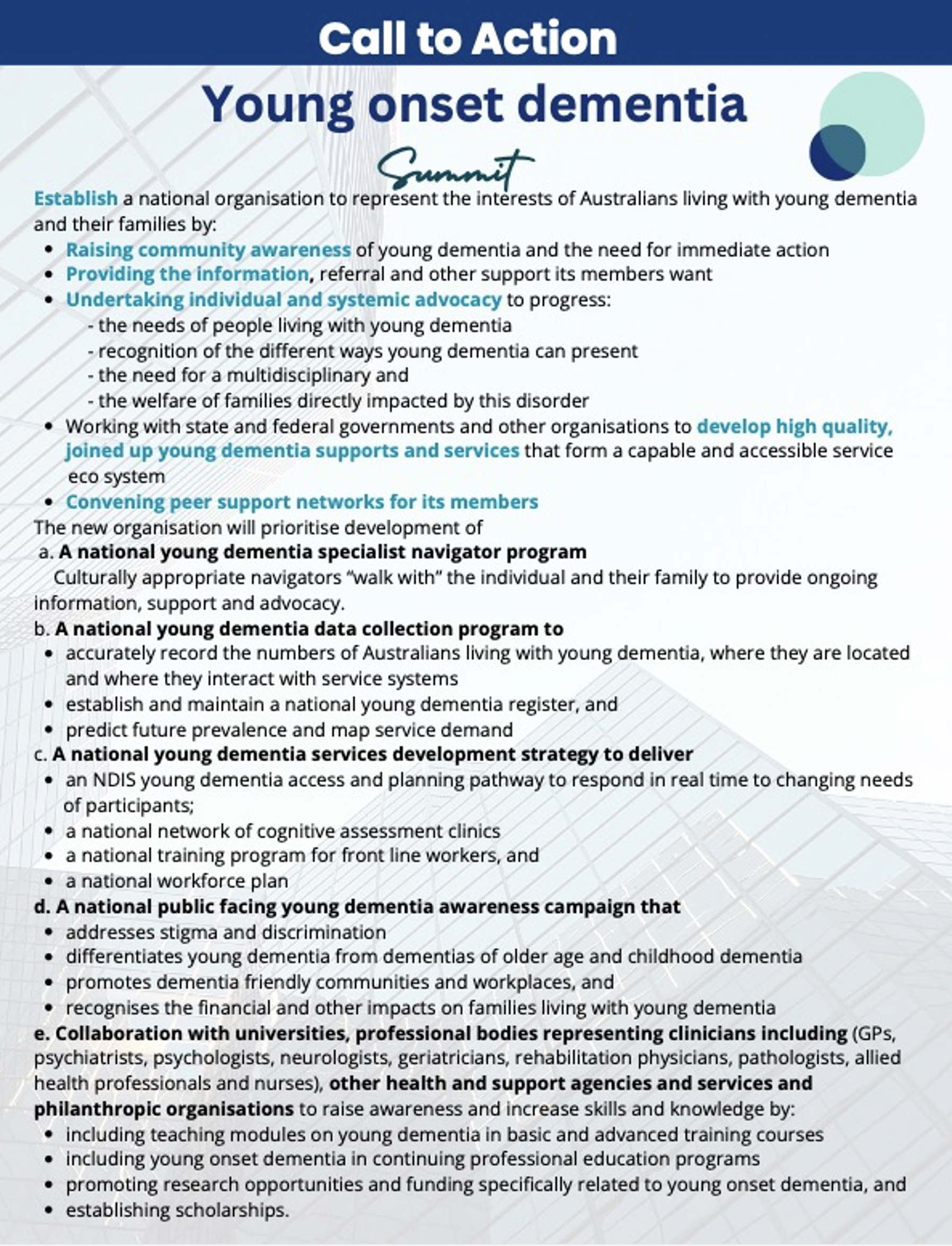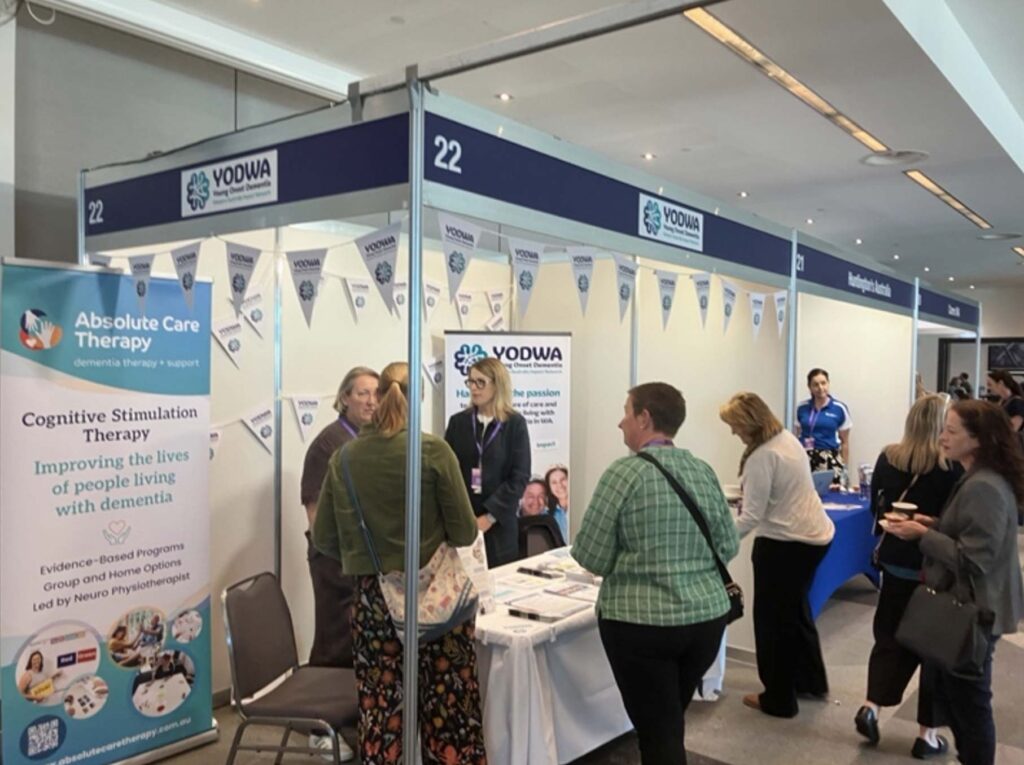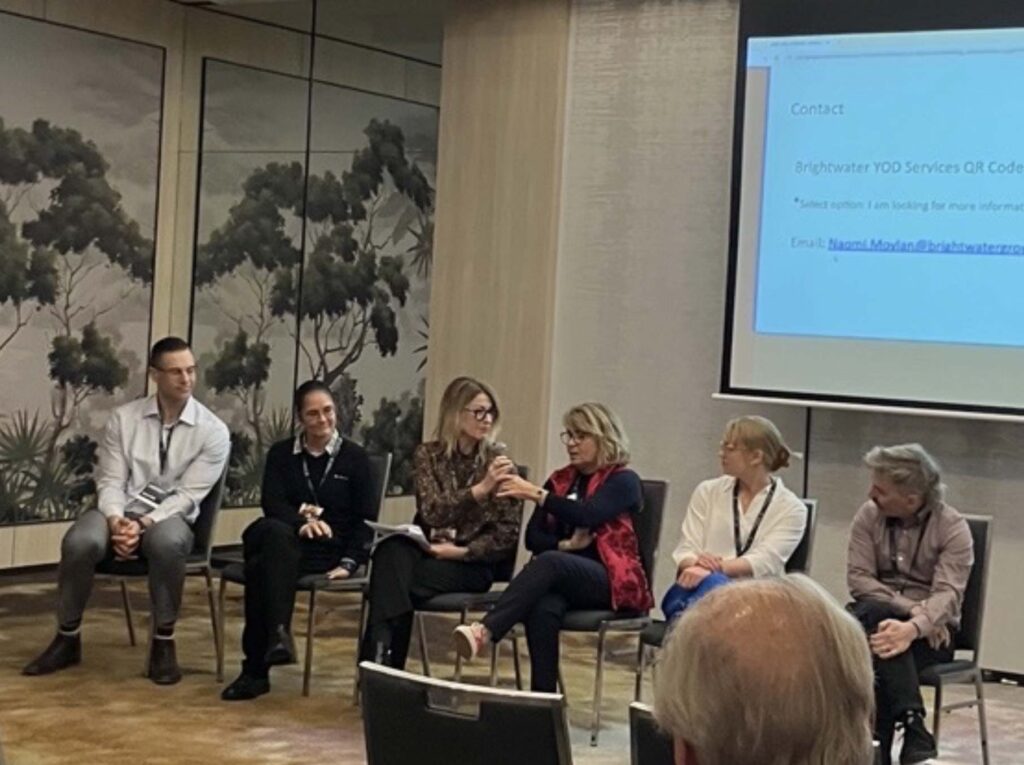
The Joint Solutions Project
In response to growing calls for advocacy from people living with young onset dementia and their families, the YPINH Alliance convened a national Roundtable with all stakeholders with an interest in young onset dementia including people with living experience, government and the NDIA, leading clinicians, peak bodies and service providers.
The Roundtable recognised the serious lack of services and policy frameworks and the shocking impact this had on people living with young onset dementia. Following he roundtable the Alliance was asked to apply for funding to articulate a comprehensive system of care for young onset dementia in Australia. This became the Joint Solutions Young Onset Dementia Project national initiative.
Funded by the Department of Social Services through its Independence, Capacity Building and Linkages program, the Joint Solutions project undertook research, consulted with people with living experience, their clinicians and providers, commissioned targeted analysis and established working collaborations to inform the system of care we developed. Led by the Alliance, a Consortium of organisations, researchers and clinicians working in the young onset dementia field has overseen the Project’s work and includes representatives
from:
- The Young Onset Dementia Special Interest Group (YOD-SIG)
- Eastern Cognitive Disorders Clinic (ECDC) and
- Dementia Australia (DA).
 |
| Click to Download Report |
Time Won’t Wait: The Joint Solutions Final Project Report
With 90 recommendations that draw on the experiences of Australians living with young onset dementia and their families, Time Won’t Wait exposes the barren service and policy landscape for people living with young onset dementia in Australia today.
With few specialist services and no identifiable pathways to provide the information and supports people are looking for, the Report details the findings of the extensive work undertaken over the Project’s 18 month life.
Every young onset dementia experience is unique, and the system needs the capacity to respond to people’s individual circumstances, location or cultural imperatives.
The report’s 90 recommendations for reform make compelling reading. They echo the themes that emerged repeatedly across the project for a capable cross sector navigation program, a national representative body,and improved awareness of the condition. Workforce development, improved diagnostic pathways and the establishment of a dedicated neurodegenerative pathway in the NDIS also thread through the Project’s work.
There is much to be done to address the Joint Solutions recommendations and to implement the system of care. The Alliance and its partners are committed to working on this reform program.
Project findings…
Over the last 18 months, the Joint Solutions Young Onset Dementia Project has undertaken the first comprehensive analysis of the experience of young onset dementia in Australia and the service and supports that are needed.
The Project undertook research and commissioned policy papers, engaged personally with people living with young onset dementia and their families, consulted with service providers, and liaised with partner organisations and government agencies to understand the experience of young onset dementia and the challenges of finding and accessing suitable support. We also completed detailed investigations of particular issues including a gap analysis of available services in Australia.
The project also has articulated a system of care for young onset dementia in Australia that describes the ecosystem that underpins the responses individuals and families need. A number of foundational elements form the core of the system, that interact with all other system components.
The Joint Solutions body of work is available in full in the tabs below.
This body of work highlights complex diagnostic journeys, fragmented services, challenges in finding and accessing age-appropriate support, and the impact of the poor levels of awareness og the condition among government agencies, clinicians, providers and the wider community.
A number of clear themes emerged from this extensive cross-disciplinary work:
- Young onset dementia remains poorly recognised and poorly understood
- People living with young onset dementia experience significant stigma and become socially isolated
- There is a pressing need for system navigation support
- There are limited skilled services available and a lack of information about how to access these services
- There is a significant need for organised advocacy.
As the first comprehensive analysis of the existing young onset dementia landscape in Australia today, the outcomes of the Project’s extensive stakeholder engagement have informed the system of care the project has developed.
The Alliance will work with partners and those who contributed to Joint Solutions to plan the work required to embed the system of care and pursue the Report’s recommendations with governments, industries and people with living experience








